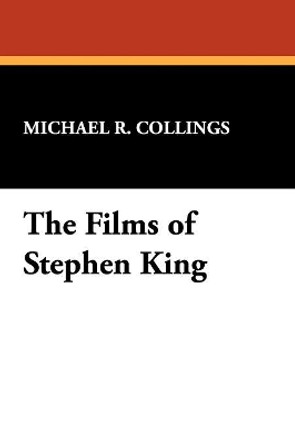Description
In Violence in the Films of Stephen King, contributors analyze the theme of violence in the film adaptations of Stephen King's work-ranging from the earliest films in the King canon to his most recent iterations-through a variety of lenses. Investigating the diverse and varying roles that violence continues to play as both the level of violence and the gendered depictions of violence have evolved, many of the contributors come to the conclusion that King's films have grown more violent over time. This book also examines the fine line between necessary violence and sensationalist violence, discussing the complexity of determining what constitutes violence with a narrative and ethical significance versus violence intended solely to titillate, repulse, or otherwise draw an emotional reaction from viewers. Scholars of film studies, horror studies, literary studies, and gender studies will find this book particularly useful.
About the Author
Tony Magistrale is professor of English at the University of Vermont.
Michael J. Blouin is associate professor of English and the humanities at Milligan University.
Reviews
Whatever one thinks about Stephen King as a writer, he undeniably has his finger on the pulse of the times. His works have increasingly reflected the burgeoning violence of the past half century in the US; so, consequently, have the 50-some films made from those works. As the essays in this book point out, the violence in King's books and films made from them has grown more graphic and is more often perpetrated against women and children. In some films, the violence is so graphic that even written descriptions made this reader queasy. Still, these essays, part sociology, part film analysis, are a valuable and necessary investigation into the Stephen King phenomenon. This reviewer particularly liked Mary Findley's "King of Pain," in which she looks at Doctor Sleep (both book and film) and Matthew Muller's "The Invasive Gaze," which offers meticulous observation of King's use of surveillance cameras in The Outsider. In "Lost in the Supermarket," Alexandra Reuber studies The Mist, making clear the uncanny way in which King anticipated the divisive effects of the pandemic-a microcosm of the US in a supermarket. This reviewer considers these three essays the standouts, but all the essays in the collection are well done. Recommended. Lower-division undergraduates through faculty; general readers.
* Choice Reviews *One of the finest collections of essays on Stephen King's films ever published. Highly readable, immensely informative, and wonderfully perceptive. The editors have assembled a stellar selection of articles from the finest King scholars. If you enjoy Stephen King, then I would strongly suggest you make room on your bookshelf for this volume. It is indispensable.
-- Gary Hoppenstand, Michigan State UniversityViolence in the Films of Stephen King is not just a timely study, but a necessary one. Poised at the intersection of aesthetics and ethics, the volume's chapters ask the hard questions of King adaptations: when is violence necessary? When is it simply gratuitous? Under what conditions (if any) is violence OK? And what pleasures do viewers derive from it? This significant volume will be essential reading not just for those interested in King, but also for those preoccupied with larger issues of violence and justice, and their representation on screen.
-- Jeffrey Andrew Weinstock, Central Michigan UniversityIn Danse Macabre, Stephen King wrote, 'I recognize terror as the finest emotion...and so I will try to terrorize the reader.' In this reflective and illuminating collection of essays, fourteen scholars shed light on the mutating nature of fear, both internal and external, from which none of us are immune. Seen through the multiple lens of King's film adaptations, the writers assay the very nature of fear in all its terrifying dimensions.
-- George Beahm, Author of The Stephen King CompanionBook Information
ISBN 9781793635815
Author Michael J. Blouin
Format Paperback
Page Count 232
Imprint Lexington Books
Publisher Lexington Books
Series Lexington Books Horror Studies
Weight(grams) 376g
Dimensions(mm) 223mm * 153mm * 15mm
Details
Series: |
Lexington Books Horror Studies |
Imprint: |
Lexington Books |











